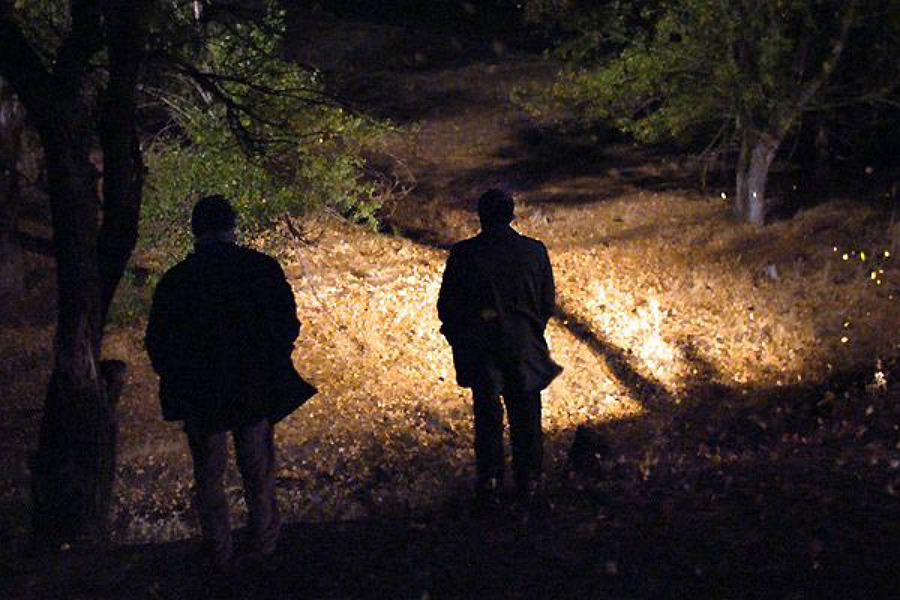Once Upon A Time In Anatolia

Liverpool filmmaker DW Mault on the importance of time and space to breath in modern-day cinema…
The codes of commercial cinema have become so ossified, offering so much less scope for interpretative pleasure than the 80s/90s. What we need is an artistic enema! A thirst for abstraction at a time when immediacy and simultaneity – culminating in the multiple strand captioning of TV news screens, or the instant feedback of Twitter, are tyrannical demands, forcing our aesthetic sensibility to seek new ways of slowing itself down. To this I guide you towards Nuri Bilge Ceylan’s majestical Once Upon A Time In Anatolia. It looks towards a cinema of stillness and intensity. A rarefied concentration on the artistic gaze; a cinema that downplays event in favour of mood, evocativeness and an intensified sense of the ephemeral.
In defiant opposition to the rapid isolation of pace in Anglo-Saxon cinema, a idiosyncratic narrative form devoted to stillness and contemplation has emerged in the work of a growing number of filmmakers over the last two decades. Most widely exhibited on the festival circuit, this “cinema of slowness” (as categorised by Michel Ciment in 2003) has begun to signify a unique type of reflective art where form and temporality are never less than emphatically present, and a diminution of pace serves to displace the dominant momentum of narrative causality.
What is this ‘Slow Cinema?’ Film Critic Jonathan Romney has described it as a ‘varied strain of austere minimalist cinema that has thrived internationally over the past ten years, a cinema that downplays event in favour of mood, evocativeness and an intensified sense of temporality’. This in essence is Once Upon A Time In Anatolia, a film that makes no apologies (and shouldn’t anyway), a film that purifies the palate after all those dry humps of Anglo Saxon cinema.
Life in a small town is akin to journeying in the middle of the steppes: the sense that “something new and different” will spring up behind every hill, but always unerringly similar, tapering, vanishing or lingering monotonous roads. A metaphysical road movie about life, death and the limits of knowledge,Once Upon A Time In Anatolia takes the unassuming form of a police investigation that, as miles and words mount, evolves into a plangent, visually stunning meditation on what it is to be human.
Some films change your perception of reality. Turkish director Nuri Bilge Ceylan’s Once Upon a Time in Anatolia, is one of those films. Co-winner of Cannes’ Grand Prix du Jury (with the Dardenne brothers’ Le gamin du vélo), it’s a dark, evocative, 2½-hour reverie that seeps its way into your imagination.
On the surface, it’s the story of a police investigation – into what, it is not immediately clear. A convoy – led by the crown prosecutor and consisting of the police chief, officers, gravediggers, two prisoners and a doctor – drives through the darkness trying to locate something. What exactly they’re looking for is revealed in bits and pieces.
The progression of Once Upon A Time In Anatolia is in slow, measured steps, but each step is a giant leap. Slowness is both the condition and the consequence of modernity. This is no longer the old question of the relationship between subject and form but one of a daily work ethic endowing each decision regarding the frame or the lighting, and searching every face or word, with the same emotional gravity, the same seriousness, so that the film’s rhythm is perfectly attuned to the rhythm of life. Yet nothing could be further from the documentary pseudo-transparency inherited from Direct Cinema. The singularity of Once Upon A Time In Anatolia is found in an unrelentingly hard-working approach to form, but one based on a rare quality of patience, passivity, and surrender to the people and places filmed.
To go further and comment in a Straubian manner is in fact what Nuri Bilge Ceylan strives for: to reconcile two things – art/great cinema and the very art of common people. Linking them and saying they are the same.
DW Mault
Once Upon A Time In Anatolia, Tuesday 10th, 8.30pm @ FACT





